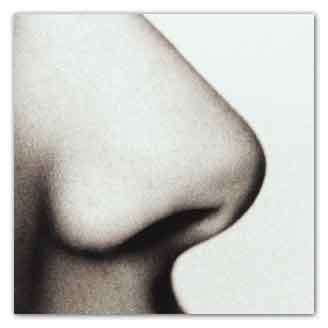|
In stores, most perfumes are categorized as either
feminine or masculine, but how do we perceive the
scents when the commercial gender categorizations
are unknown? A new dissertation from Stockholm
University shows that many perfumes are perceived as
"unisex", and that these are the scents preferred by
most people.

Perfume advertising tells us nothing about the odor
quality of the perfumes. Instead the market feeds us
with images of either stereotypically masculine men
or stereotypically feminine women, and thus tries to
sell us an identity rather than a fragrance. This is
despite the fact that the odor of many perfumes
framed for either men or women rather are perceived
as fairly similar.
When heterosexual people between the ages of 20 and
30 were asked to choose perfumes solely on the basis
of the scent, and without knowing if the perfumes
had been categorized as feminine or masculine, they
tended to choose the same scents, both for
themselves and for their potential partners. These
results come from a dissertation in psychology in
which Anna Lindqvist has examined how perfumes are
perceived when the gender categorizations are
unknown.
“Since there is an idea that fragrances can enhance
our femininity or masculinity, and thus attract a
partner of the opposite sex, this is an exciting
result,” says Anna Lindqvist at the Department of
Psychology, Stockholm University.
Unisex perfumes most popular.
The participants were also asked to judge how
feminine and masculine they perceived the perfumes
in the experiments.
“The participants preferred the perfumes that they
perceived as neither particularly feminine nor
masculine. And when the participants were asked to
gender categorize the perfumes themselves, they
choose a unisex label for these fragrances,” says
Anna Lindqvist.
The average perfume user’s experience of the scents
thus seems to differ from how the perfumes are
marketed, and when the commercial gender
categorization is unknown, both male and female
participants tended to choose the same perfumes.
For more information
Stockholms universitet
MDN
|